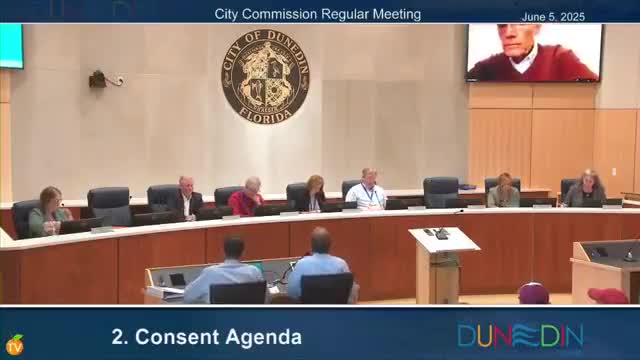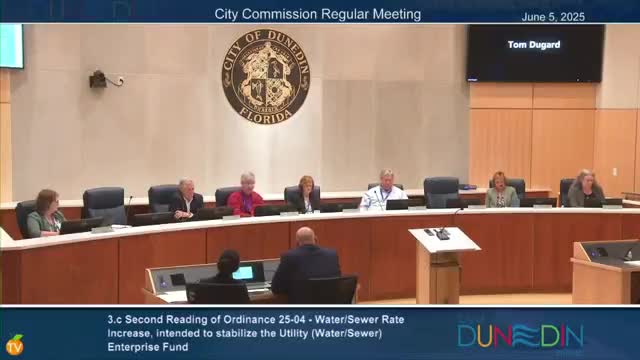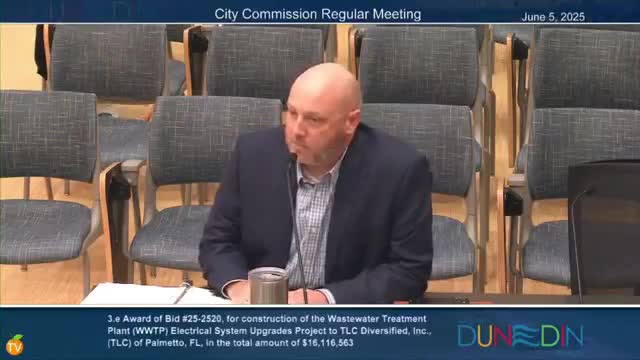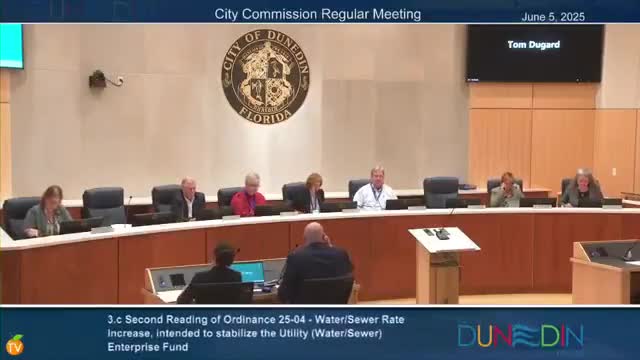Article not found
This article is no longer available. But don't worry—we've gathered other articles that discuss the same topic.

Dunedin commission approves 78-unit affordable project at Carnation Drive after public concerns over flooding, traffic and light

Dunedin approves voluntary contraction of 0.7‑acre parcel to Clearwater to allow unified medical campus development

City awards $16.1 million contract to replace aging electrical systems at wastewater plant

